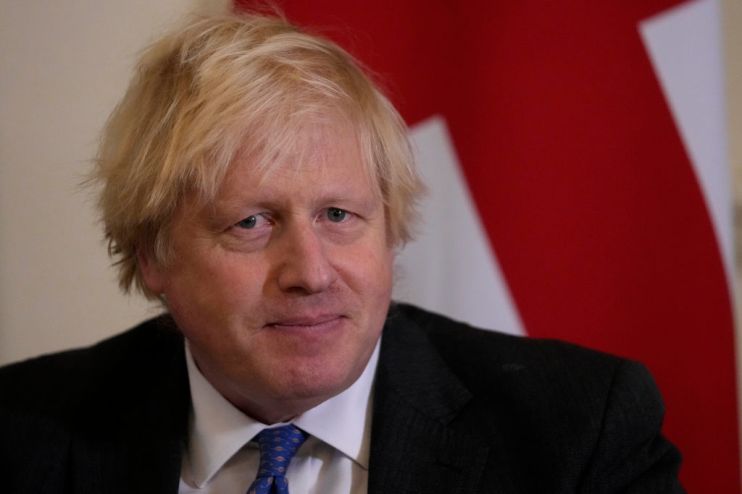Calling time on Boris’ leadership could bear fruit for the Tories – if they grasp it

How despondent are the Tories? One MP was beyond glum the other day. Quizzed who they’d like as leader, they replied: “We could have Arthur the bloody Great and it wouldn’t make any difference.”
Labour has been cock-a-hoop as opinion polls have consistently given the party double-digit leads. But things can change.
Just ask Sir Keir Starmer who feared a leadership coup himself as recently as Labour Conference last October. William Hague often recalls how the highs of the 2000 local elections – when he handed Labour its worst night since 1992 – were followed by crushing disappointment a year later when Tony Blair walloped him in the general election.
In short, it’s not over for the Tories, even if it may very well be for Boris. Despite the sense of utter ineptitude around the party, there is a route back under a new leader. So what is the blueprint for whoever succeeds BoJo?
Theresa May famously labelled the Tories the “Nasty Party” in 2002 but that generation would have been beaten to a pulp by this lot.
Quite clearly a new leader must not only pledge to be honest with the nation (as much as any politician can be) but also fix multiple bridges within the party itself.
Whether it’s overdone or not, Will Wragg’s revelations about whips “blackmailing” younger MPs has fuelled the belief that the current Tory operation is out of control. One MP privately labelled the Government a “gangsta state” just last week. We’ve been here before – let’s remember the days of Alistair Campbell and Theresa May’s ‘Nick and Fi’ – but it’s top of the in-tray.
Meanwhile, Keir Starmer’s net approval rating with Redfield and Winton last week was the highest for a year – but still a net 0 per cent. And while half of those who voted Tory in 2019 don’t want to do the same now, a third haven’t switched to another party.
A new leader can turn the fire on Sir Keir. A starting point is the ‘Ten Pledges’ he signed at the start of 2020 when he succeeded Jeremy Corbyn. In that campaign he was asked on TV whether he would renationalise water and electricity. Sir Keir raised his hand. Yes.
Last week he said he never thought top-down nationalisation was right. At best it makes him look shifty, at worst a lie-at-any-cost politician. And look what happened to the last one of those.
Of note, Sir Keir, a former second referendum campaigner, also talked of defending free movement.
David Davis knocked on doors in 17 ‘Red Wall’ constituencies two years ago and says voters flocked to the Tories because they didn’t want Jeremy Corbyn or his high taxes. Look how that turned out.
A new leader could reset by spiking the ‘NICs’ Health Tax hike and instead borrow the £12.5bn earmarked to help clear NHS waiting lists.
Then they need to go further. First a proper ‘Go for Growth’ plan. Then a shake-up of the business rates regime. Business chiefs love Labour’s commitment to do so. It should be done, along with a pledge to make it easier to convert empty high streets and town centre property.
Theresa May was onto something with her pledge to help the ‘JAMs’ (Just About Managing) and a new leader needs to occupy this space.
Depending where we are with energy, the Tories should vow to take “Green Levies” off gas and electricity bills and fund eco work through general taxation – saving homeowners £170 a year.
But there’s more a Government could do to help struggling families, not least on VAT. Brexit means Britain can zero rate where it wants (not least on energy). Why not zero VAT school uniforms for those on Universal Credit or zero rate more grocery essentials and items such as toothpaste. Better pay for front-line nurses and teachers is also key.
There were two things Boris Johnson could always point to – Getting Brexit Done and then using the ‘freedom’ for a turbocharged Covid-19 vaccination programme.
Brexit now is best known for traffic jams and empty shelves and a new leader has to unearth a new Brexit dividend if they’re to bring the broad church of 2019 Tory voters back together. The Tories need to be imaginative and find areas where Britain can take a lead by going it alone, be it issues such as AI or autonomous vehicles.
On Covid-19, the Government could build a legacy by supporting more biotech start-ups. And they can exploit the huge support offered by the furlough programme. It’s almost forgotten now, but the Government protected more than 11.7 million jobs and supported 1.3 million businesses.
Surely even they can find some voters in there.